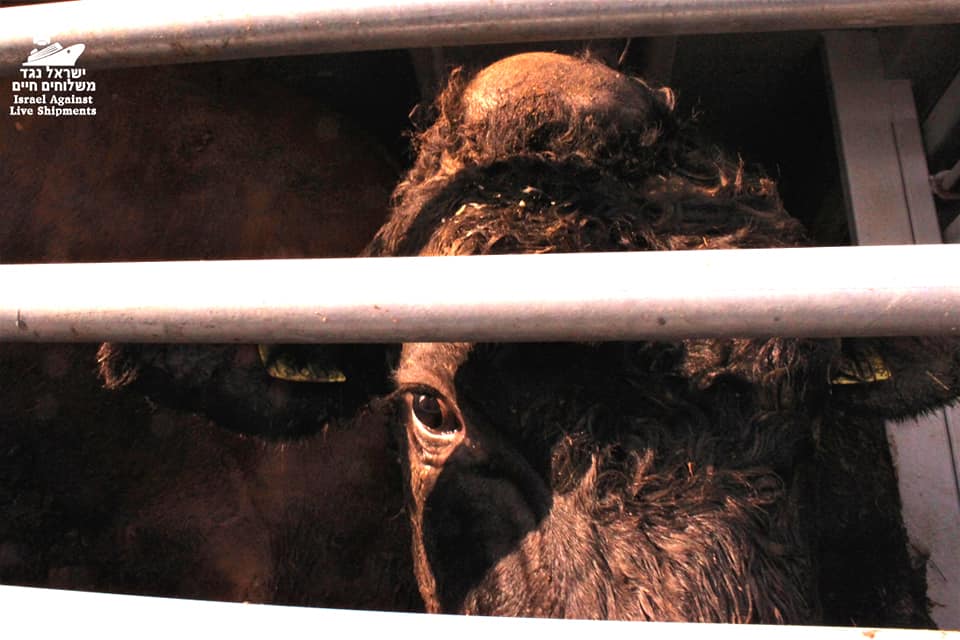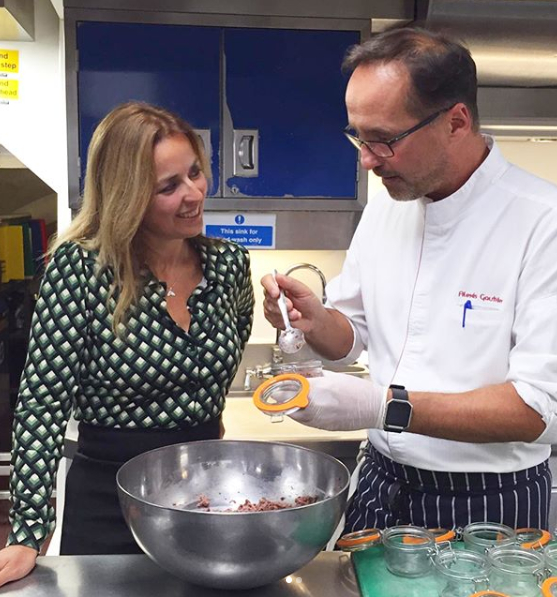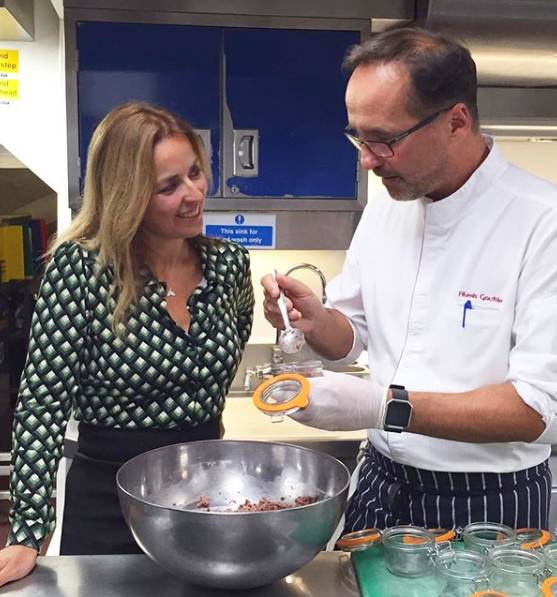Worldlog Marianne Thieme 4. rujna 2018.
The recess has finished. It was a busy recess because I am working on a new book about the importance of idealistic politics and on a new documentary together with our scientific bureau (the NGPF). I will tell you more about that later.
The fact that idealistic politics remains necessary was confirmed several times this summer. While summer often brings peace and joy for people, this summer was hell again for millions of animals. One of the most horrifying violations of animal welfare is the cruel transport of animals within and outside of Europe: animals that are transported from EU countries to countries like Turkey and Israel, travelling for days and sometimes weeks, who become overheated, dehydrated or die because they get jammed. Endless waiting times, for example at the Bulgarian-Turkish border, causes shocking and unacceptable animal suffering.

Millions of animals suffer during long transports
Approx. 23 million of day-old chicks are transported by plane from the Netherlands to other countries every year. And from Belgium even more than 100 million chicks get transported. Sometimes, the abominations that take place with that make the news, such as the twenty thousand of chicks that were found dehydrated, grilled and gassed in their transport container at the Belgian airport Zaventem. This is only the tip of the iceberg.
The Party for the Animals wants to stop such suffering of animals as soon as possible. For that reason, we have asked for attention for these unjustified actions in different ways this summer, both in the Netherlands and in Europe. We asked the responsible Dutch minister and the European Commission critical questions. Our MEP Anja Hazekamp portrayed the violations of European agreements on animal transports at the ports of Slovenia and Croatia: animals on transports die because of the heat, weak animals were forced on board with violence, there were no vets and regulations were not observed.

This summer there was a lot of animal suffering in the Netherlands too: on the 18th of July, 1,200 pigs died because of suffocation. The ventilation system was defective, the alarm did not work, and the owner tried to hide these sad circumstances. In the Netherlands, piglets are fattened mechanically for slaughter. Food, water, ventilation: everything is fully automatic and there is no human intervention at all. The air the animals have to live in is poisoned, so if the ventilation system breaks down there is nobody to rescue the animals.
Luckily, people are increasingly opposing to the way animals are treated. Residents try to block the arrival of a megastable in their vicinity more frequently. On the 25th of August, people organised the first Animal Rights March in the Netherlands and they demanded to stop the exploitation of animals. The march took place in various cities in countries such as Luxembourg, New Zealand, the Philippines and Canada.
And there are more positive developments: companies such as WeWork (6,000 employees) have stopped serving meat and many more educational institutions are changing to vegetable food. The German Minister of the Environment recently decided that vegetarian meals will be served during all official government events. The products must then preferably be organic, from the current season, local and/or fair trade. That is how it should be: the government must set the right example. That is why I have also asked the Dutch government to change to vegetable catering.

Marianne visiting vegan Michelin star chef Alexis Gauthier
And that it is simple to eat delicious vegetable food was evidenced by my visit to Alexis Gauthier, vegan and French Michelin star chef, who has his restaurant in London. His foie gras – causing much animal suffering – used to be really famous, but he never wants to make it again. Gauthier now has a vegetable version, the “faux gras”, based on lentils, walnuts and shallots. It is just so nice and so free from animal suffering.
In Gauthier’s restaurant I interviewed scientist Marco Springmann of Oxford University, who told me why it is better not to eat any animal products. The interview is for our new documentary, which will be released at the start of next year. To be continued!
Until the next time.
Marianne
Godišnji odmor je gotov. Međutim, bio je to radni odmor jer radim na novoj knjizi o važnosti idealistiške politike i na novom dokumentarcu zajedno s našim znanstvenim uredom (NGPF). O tome više kasnije.
Da postoji potreba za idealističkom politikom dokazano je ovoga ljeta više puta. Dok ljeto za većinu ljudi znači odmor i razonodu, ovo je ljeto bio pakao za milijune životinja. Jedan od najokrutnijih oblika životinjske patnje je okrutan transport životinja unutar i izvan Europe: prijevoz životinja koji iz EU odlaze u zemlje poput Turske i Izraela i koje putuju danima, čak i tjednima i pritom trpe velike vrućine, dehidriraju i oslabe. Beskonačno čekanje na primjerice graničnim prijelazima između Bugarske i Turske uzrokuje šokantnu i neprihvatljivu životinjsku patnju.

Milijuni životinja pati prilikom prijevoza
Iz Nizozemske se godišnje zrakoplovima izvozi oko 23 milijuna jednodnevnih pilića u druge zemlje. Iz Belgije se čak izvozi više od 100 milijuna pilića. Ponekad se grozote koje se tamo zbivaju objave na vijestima, poput dvadeset tisuća pilića koji su ovog ljeta bili isušeni, ispečeni i koji su se nagutali plina u svom transportnom kontejneru u belgijskoj zračnoj luci Zaventem. To je tek vrh sante leda.
Stranka za životinje želi čim prije stati na kraj životinjskoj patnji. Zato smo ovog ljeta na sve moguće načine, kako u Nizozemskoj, tako i u EU skretali pažnju na ovu nepravdu. Postavljali smo kritična pitanja odgovornom nizozemskom ministru i Europskoj komisiji. Naša europarlamentarka Anja Hazekamp ukazala je na kršenje EU-dogovora u slovenskim i hrvatskim lukama po pitanju prijevoza životinja: životinje se tokom prijevoza pregrijavaju, slabe životinje se grubo ukrcavaju na brodove, nije bilo prisutnih veterinara i pravila se nisu poštivala.

Životinjska je patnja u Nizozemskoj ovog ljeta također bila ogromna: 18. srpnja se 1200 svinja udavilo u štali. Ventilacijski sustav je bio pokvaren, alarm nije radio i vlasnik je pokušao zataškati ovaj tužan događaj. U Nizozemskoj se praščići kompletno strojno tove za klanje. Hrana, voda, ventilacija: sve je potpuno automatizirano i nema čovjeka blizu. Zrak koji životinje udišu je otrovan, stoga ako ventilacija otkaže, nema nikoga da spasi životinje.
Na sreću, među građanima je sve snažniji otpor prema načinu na koji se tretira životinje. Stanovnici sve češće blokiraju gradnju mega štala u svojoj blizini. Dana 25. kolovoza građani su organizirali prvi Animal Rights March u Nizozemskoj povodom kojeg su zahtijevali kraj eksploataciji životinja. Marš se održao u različitim gradovima u zemljama poput Luksemburga, Novog Zelanda, Filipina i Kanade.
Ima sve više pozitivnih ishoda: tvrtke poput WeWork (6000 djelatnika) prestali su servirati meso i sve više obrazovnih institucija prelazi na biljnu prehranu. Njemački je ministar okoliša odlučio da će se tokom svih službenih događanja vlade jesti vegetarijanski. Proizvodi bi pritom isto trebali biti biološkog uzgoja, odgovarati sezoni, biti lokalni i/ili fairtrade. Tako i treba: vlada mora biti uzor. Stoga sam i nizozemsku vladu pitala da prijeđe na povrtni catering.

Marianne u posjeti veganskom chefu s Michelin zvjezdicom Alexisu Gauthieru
I da možemo jesti ukusne vegeterijanska jela dokazao je i moj posjet Alexisu Gauthieru, veganu i francuskom chefu s Michelin zvjezdicom i restoranom u Londonu. Njegov foie gras – koji je uzrokovao mnogo životinjske patnje, nekad je bio vrlo popularan, no on ga ne želi više nikada pripremiti. Gauthier sada ima bilnju verziju, “faux gras”, na bazi leće, oraha i luka. Tako ukusno i bez životinjske patnje!
U Gauthierovom restoranu intervjuirala sam znanstvenika Marca Springmanna s Sveučilišta u Oxfordu koji mi je ispričao zašto je bolje da ne jedemo životinjske proizvode. Intervju je za naš novi dokumentarac koji izlazi početkom iduće godine. Nastavak slijedi!
Do idućeg puta.
Marianne